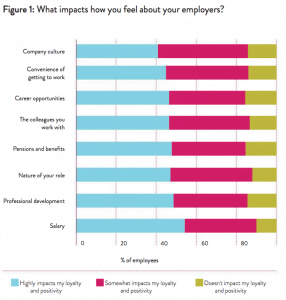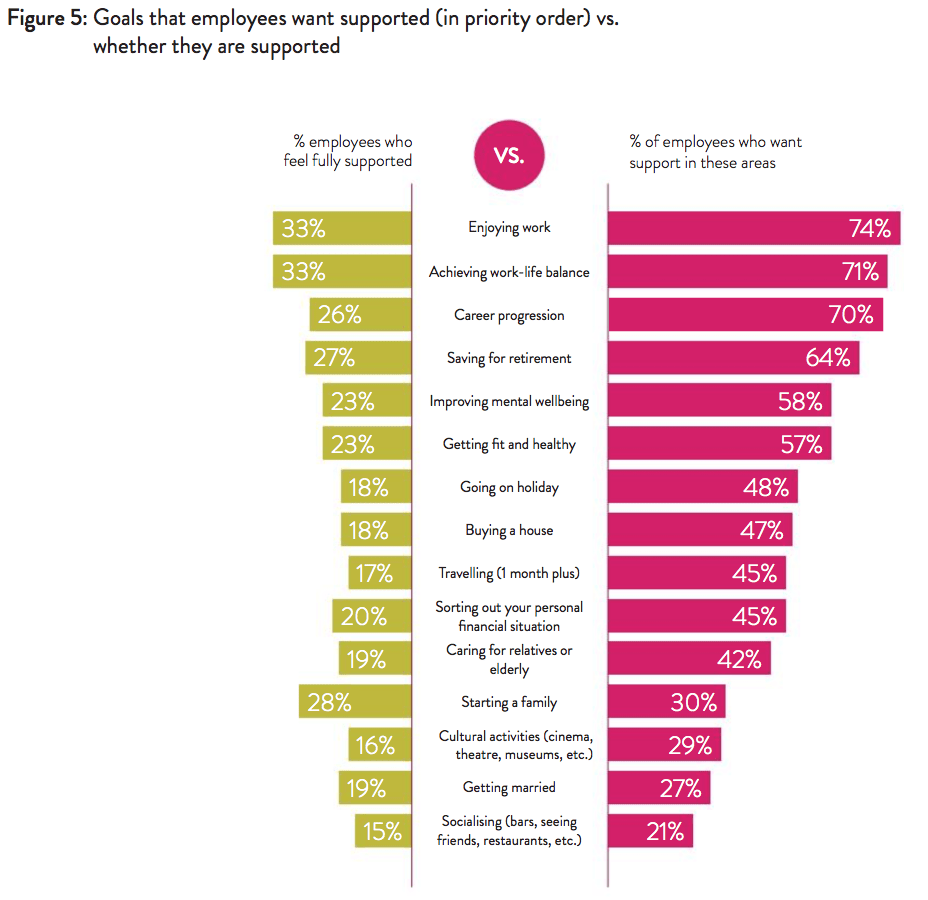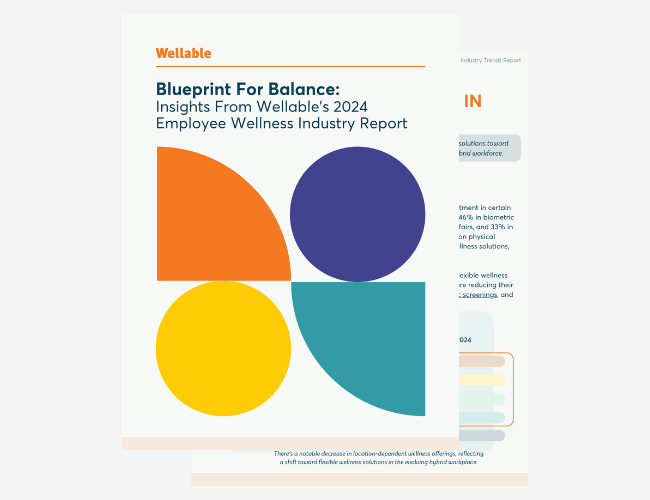New data suggests that delivering a paycheck and “standard” benefits is no longer enough to retain employees. According to the Global Employee Benefits Watch report from Thomsons Online Benefits, employees want to feel personally cared about. Specifically, the survey found that employees who feel that their employer-provided benefits actually have a positive impact on their lives are 40%+ more likely to declare themselves loyal to the company. This is consistent with research from the Global Wellness Institute, which showed that “caring” companies boost employee health and productivity. That is, employees that perceive their employer to genuinely care about them, professionally and personally, are healthier and improve the operating metrics of the company.

With the average employee changing companies every four years (and younger employees even more likely to do so), the financial and non-financial benefits to employee retention could not be clearer, especially in the current labor environment. Although expanding benefits increases costs, employers that invest in benefit packages that truly improve the personal lives of employees will experience lower recruitment and training costs from greater loyalty. A Society of Human Resources Management (SHRM) study found that the average cost of replacing a salaried employee ranges from six to nine months of salary. For a manager making $50,000 a year, the replacement would be $25,000 to $37,500!
Employees place benefits above career opportunities, culture and even colleagues when asked about the factors impacting their feelings towards their employer. This means that they are more likely to be loyal, have a better workplace experience, and put in discretionary effort if they’re happy with the benefits their employer is offering.
– Chris Bruce, Thomsons Online Benefits
In addition to quantifying the importance of benefits on company loyalty, the survey also explored which benefits employees felt were important. These benefits were the ones that clearly demonstrate that an employer cares for the employees, and unsurprisingly, a small percentage of employees felt support from their employer in these areas. This likely explains the high levels of churn many employers experience. For example, nearly 60% of respondents wanted to improve their mental and physical well-being, but only 23% reported that they felt fully supported by their employer in doing so. Seventy-five percent of respondents cited work-life balance as an objective for themselves.

Employees want to have access to and enjoy their time outside of work. Even when away from the office, many employees feel the stress of the office. Being physically and mentally healthy helps individuals enjoy work and personal life more fully, and as more employees recognize this, they are choosing to check out other employment opportunities to find a place where they feel as if they matter. Employees of all ages and demographics want to feel like their employer cares for them. Fortunately, there are many ways for employers to demonstrate that they do care, including providing access to employee wellness resources.
Historically, companies launched employee wellness program to extract a hard financial return (lower medical expenses). Although the financial returns were mythical, many employers still view return on investment as the only reason to initiate a program. This is a mistake. Recruitment and retention offers a compelling value-on-investment that employers, especially those in industries where human capital is critical, cannot ignore.












